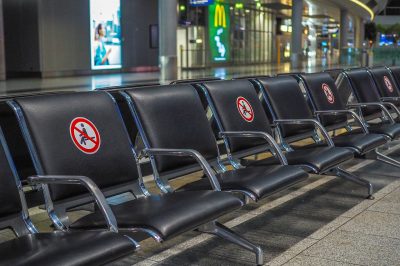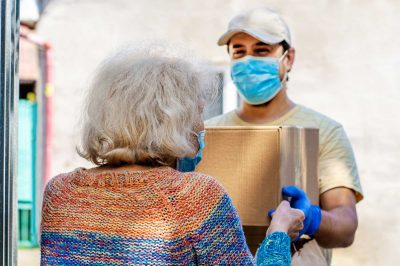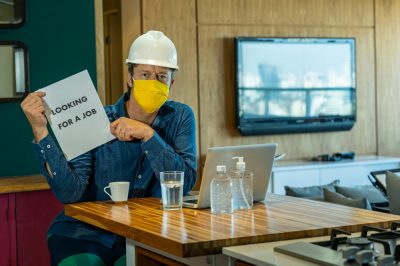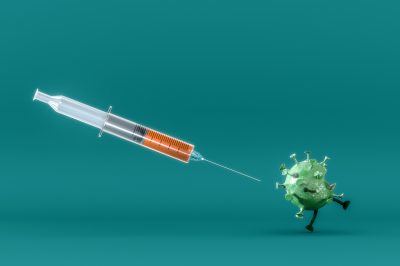I have received several questions expressing concerns about the COVID-19 vaccines. The main issues which arise are:
1. Is it halal to use the COVID-19 vaccine? What if it contains haram ingredients?
2. Some say that the vaccine contains foetal cells – then how can we use it?
3. Why fear COVID-19 when we ought to fear Allah?
4. Did the Prophet take vaccines?
5. Can a father/husband forbid his children/wife from taking the vaccine?
6. Would it be wrong for a person to refuse a vaccine, preferring instead to simply ‘put their trust in Allah’?
Islam and Health
Before answering these questions, let us remember that Islam is a life-affirming faith that celebrates health and wellness. Islam encourages us to do what it takes to maintain our health and lead happy, fulfilling lives.
Islam warns us against measures or actions that may endanger life. The Prophet’s words are explicit: “Your body has rights; your eyes have rights; your spouse has rights; your guest has rights. So, give each one their due.” (Al-Bukhari)
And Allah says, {And do not kill ˹each other or˺ yourselves. Surely Allah is ever Merciful to you.} (An-Nisa’ 4: 29)
The Prophet was known to consult physicians and take prescribed medications for illnesses. `A’ishah reported that physicians would visit the Prophet, and he would engage them in discussions about diseases and their treatment.
The Prophet said, “O servants of Allah, take medications, for Allah who sends diseases, also sends down cures.” Another narration added: “except death.” and in another, “except old age.” (Ahmad, Abu Dawud and others)
When the Prophet visited Sa`d ibn Abi Waqqas, who was sick, he told him to consult physicians and get treated. (Abu Dawud)
Islam Commands Prevention
In terms of taking preventive measures, the Prophet taught us that those who are likely to infect/harm others in any way should stay away from attending congregations until they recover.
And concerning more deadly diseases, the Prophet said, “No one suffering from a contagious disease should be brought near a healthy person.” (Ibn Hibban and others)
He also said, “If you hear of an outbreak of plague in a land, do not enter it; but if you are already there, you should not leave.” (Al-Bukhari and Muslim) He said so to prevent the spread of contagious diseases.
While taking preventive measures and taking medications, he also taught us to maintain a firm belief that the real healer and curer is Allah. Allah has provided means and methods of healing – by relying on them and acting upon them, we are in no way contradicting the will of Allah.
When the pious caliph Umar refused to enter a city with a plague outbreak, someone said to him, “Are you running away from the decree of Allah?” He replied, “We flee from one decree of Allah to another.” (Al-Bukhari and Muslim)
In other words, just as Allah has decreed diseases, He has decreed that we take sound precautions to avoid getting sick; similarly, He has decreed that we seek treatment when we fall ill.
We must bear in mind that Muslims are not permitted to act on unverified reports, rumors, and hearsay. Allah orders us to verify stories we hear before passing them on or acting on them. By failing to apply this principle, Allah reminds us that we can harm ourselves and others. Let us keep these points in mind while considering COVID vaccines.
Now to address the issues identified earlier.
Question 1: Is it halal to use the COVID-19 vaccine? What if it contains haram ingredients?
As documented in the statement of the Muslim Scholars from Britain, there are no known haram ingredients in the two primary COVID vaccines (from Pfizer-BioNTech, and Moderna) so this is not an issue.
Even if one were to assume, hypothetically, that a medication or vaccine etc. contained some haram ingredients, eminent scholars have ruled that it would still permissible to take them if there was no alternative.
Since a COVID-19 vaccine is the only effective treatment (along with preventive measures such as wearing masks and maintaining social distance), we are definitely allowed to take it, according to established rules of Fiqh.
Question 2: Some say that the vaccine contains foetal cells – then how can we use it?
It is not true that the above vaccines contain aborted fetus cells; as such, any claims of this nature can be dismissed as irrelevant.
We cannot put stock in rumors and unverified information; the COVID-19 pandemic is deadly, and we must do everything possible to prevent its spread and save lives.
By spreading such rumors and false negative information about the vaccines, we endanger lives. Allah teaches us that saving one life is like saving the life of all; likewise killing one person is like killing all.
Question 3: Why fear COVID-19 when we ought to fear Allah?
As Muslims, we ought to fear Allah at all times. Fear of Allah does not mean that we endanger our health or court sickness by failing to take preventive measures or refusing treatments when we get sick.
The Prophet (peace and blessings be upon him) is our ideal role model. He said, “I am the one who is more conscious of Allah than all of you,” (Ahmad, Ibn Hibban and others) and he advised us to take preventive measures as well as seeking treatments.
The Prophet consulted physicians and followed the prescriptions he received from them. He advised his companions and immediate followers to do the same. So getting vaccinated against COVID-19 and getting treatment if we get sick is not against Islam’s teaching.
Question 4: Did the Prophet take vaccines?
Vaccinations were not known in Arabia at the time. However, the Prophet (peace and blessings be upon him) made use of the treatments available or known to Arabs in his time, and encouraged his followers to do the same.
He also told them to work hard to find cures and treatments: “Allah who sends down diseases also sends down cures for them; when the right medicine is found the person is cured of the illness.” (Muslim).
In other words, we should strive to find treatments. Thanks to the Prophet’s inspiration, Muslims from those early generations were at the forefront of finding cures and treatments through objective scientific observation and experimentation. It is safe to conclude that if the Prophet (peace and blessings be upon him) were present today he would endorse vaccination against a pandemic.
Question 5: Can a father/husband forbid his children/wife from taking the vaccine? Answer
No father can prevent his children from getting vaccinated or seeking treatment. Children of age and sound mind have a right to choose for themselves; all children have the right to live, maintain their health and get treated when sick; a father cannot take these rights away from his children. If he were to do so, he would be overstepping his limits. The Prophet said, “No one has the right to be obeyed in disobedience to Allah.” (At-Tabarani)
The same goes for a wife; a husband has no such right over his wife, just as a wife cannot prevent her husband from seeking treatment.
Question 6: Would it be wrong for a person to refuse a vaccine, preferring instead to simply ‘put their trust in Allah’?
It depends. If someone is living with others and may spread the virus by refusing vaccination, then it is haram for them to refuse vaccination.
Someone living alone who is careful not to interact with others may choose to refuse vaccination, but this may still be undesirable. And they would be obligated to get vaccinated if governmental or health authorities made vaccination mandatory for all in order to protect society.
At no time are we allowed to place our own lives, or the lives of others, in danger via reckless behavior or action. The COVID-19 pandemic is deadly, and we must never take it lightly. Being complacent about it is no different than someone driving with a faulty brake system. Sooner or later, they will likely harm themselves and/or others.
I pray to Allah to inspire us to act responsibly and do everything within our means to prevent the spread of this pandemic. May the All-Merciful One protect our communities and bless us in our efforts to save ourselves and others.





